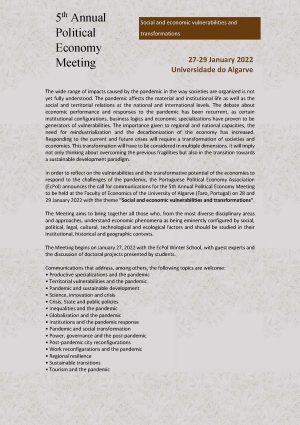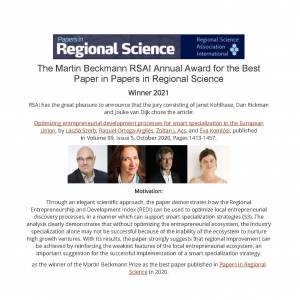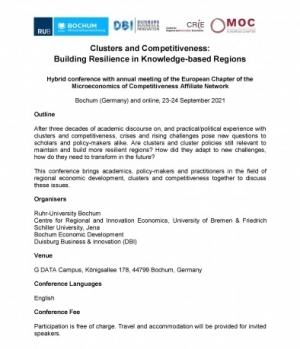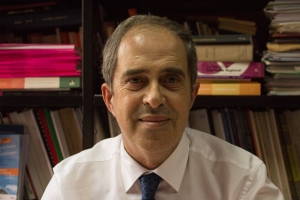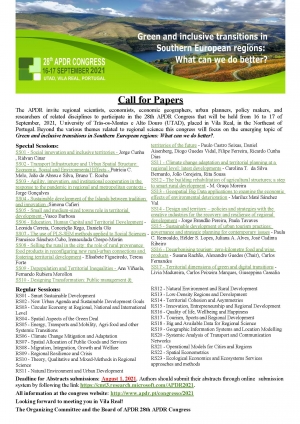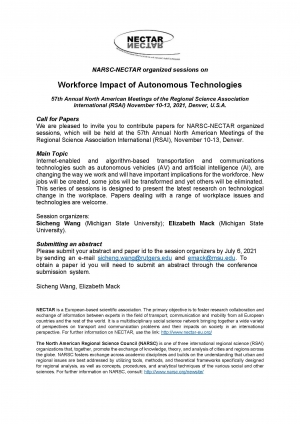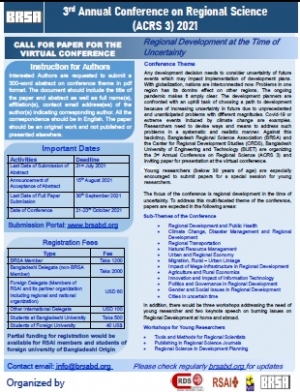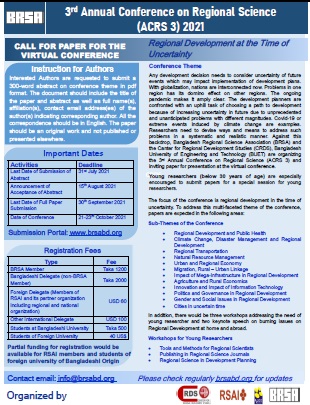News
Elisabete Martins
Job offer_Postdoctoral position in social sciences-Participatory approaches
Postdoctoral position in social sciences-Participatory approaches
BIPD/UTAD/5/2021
EN: https://euraxess.ec.europa.eu/jobs/665774
PT: https://www.campus.utad.pt/bolsasinvestigacao/lista/1501
The University of Trás-os-Montes and Alto Douro (UTAD) opens a call for one (1) Research Grant for PhD students, in Social Sciences, in the frame of the R&D unit Center for Transdisciplinary Studies for Development, funded by UIDP/ 04011/2020.
Application deadline: August 11, 2021 | Start of the position: September 13, 2021
We offer a 28-months postdoctoral position to work in the development of the DATA4LOWDENSity COLab, a smart living lab aiming at co-creating place-based territorial intelligence to support low-density territories’ smart sustainable transitions.
Admission requirements:
The candidate must hold a PhD (completed within the last three years) in Social Sciences and must have demonstrable advanced skills in planning, organising and implementing participatory methods and approaches with different actors and stakeholders.
Key responsibilities and main tasks
The postdoctoral research fellow will lead the development of the living lab component of the DATA4LOWDENSity COLab supported by his/her senior researchers supervisors.
Salary and other benefits
- The monthly value of the grant is 1646 euros (values are annually established by the FCT, I.P. https://www.fct.pt/apoios/bolsas/valores.phtml.en)
- Funds to present a research paper in two international conferences, held in the Europe, per year, in a total of four funded participation’s (funding includes registration fees, traveling and accommodation expenses).
- Office space and personal computer for work use
How to apply (follow the instruction in the link)
BIPD/UTAD/5/2021
EN: https://euraxess.ec.europa.eu/jobs/665774
PT: https://www.campus.utad.pt/bolsasinvestigacao/lista/1501
Post-doctoral Associate (Project Manager; Assistant Director of Rutgers Economic Advisory Service)
Position Details
| Recruitment/Posting Title | Post-doctoral Associate (Project Manager; Assistant Director of Rutgers Economic Advisory Service) |
|---|---|
| Department | BSPPP - Dean's Office |
| Salary | Commensurate With Experience |
| Posting Summary |
This is intended to be a renewable appointment with the Edward J. Bloustein School of Planning and Public Policy’s Rutgers Economic Advisory Service (R/ECON™). The successful candidate will work with a team of researchers from R/ECON™ in coordination with other groups within the Bloustein School and across Rutgers Universities campuses on various research projects in the area of regional economic impact analysis. The position is being made possible through the funding of the Rutgers New Jersey State Policy Lab. R/ECON has promised to deliver weekly blogs, bi-weekly policy briefs, and bi-monthly policy reports as part of its contribution to the Lab. The candidate will be a key contributor to the Lab’s deliverables. S/he also will be required to maintain client contact and, hence, communicate with excellence in English, in both written and oral formats.
Prior to being hired candidates shall have completed all requirements for a Ph.D. degree in economics, public policy, planning, geography, agricultural economics, applied economics, or a related field prior to hiring. Proven skill in the implementation of systems econometric time-series models and/or input-output models is key. Being able to design and run applied computable general equilibrium (CGE) models would be a plus. Demonstrated experience in publishing academic articles and public reports is desired.
|
| Posting Number | 21FA0861 |
| Minimum Education and Experience |
Completion of Ph.D. degree requirements in economics, public policy, planning, geography, agricultural economics, applied economics, or a related field prior to hiring.
|
|---|---|
| Required Knowledge, Skills, and Abilities |
Basic ability in MS Excel is required. A demonstrated ability to run/produce systems econometric time-series models and/or use input-output models. The ability to write extremely well in English with a sense of how regional economies operate and how public finance can be used to nudge such state and local economies. It will help if candidates know basic of Stata and EViews software. It is even better if the candidate knows one of the following computer languages: Matlab, R, Python, and/or Octave.
Completion of Ph.D. requirements signal an ability to work independently. The universal dissertation/thesis requirement of this degree also displays the candidate’s ability to write cogently. |
| Special Instructions to Applicants | |
|---|---|
| Quick Link to Posting | https://jobs.rutgers.edu/postings/137313 |
| Campus | Rutgers University-New Brunswick |
| Home Location Campus | Downtown New Brunswick |
| Location Details |
Posting Specific Questions
Required fields are indicated with an asterisk (*).
Applicant Documents
- Resume/CV
- Cover Letter/Letter of Application
- Writing Sample 1
- List of Professional References (contact Info)
- Writing Sample 2
- Teaching Philosophy
Political Economy will meet in the Algarve to debate social and economic vulnerabilities and transformations
The 5th Annual Political Economy Meeting "Social and economic vulnerabilities and transformations” will take place at the Faculty of Economics of the University of Algarve on the 28th and 29th of January 2022. The attention of this edition of the main event on Political Economy in Portugal will be centred in the pandemic crisis and on the necessary transformations in the economy and society. In recent years, this meeting has brought together economists and other specialists from the most diverse disciplinary areas and approaches, who understand that economic phenomena are the result of social, political, legal, cultural, technological and ecological factors and that must be studied with attention to their institutional, historical and geographic contexts. The meeting has a preamble on January 27 with a Winter School, with several invited experts and the discussion of doctoral projects presented by students from several Portuguese and foreign universities.
The call for communications is currently open until September 17th. Proposals must be submitted in Portuguese or English. The Meeting will use a hybrid model, with a majority of face-to-face, plenary and parallel, sessions, and a set of online sessions.
The 5th Annual Political Economy Meeting is organized by the Portuguese Political Economy Association, Faculty of Economics, University of Algarve, CinTurs - Research Centre in Tourism, Sustainability and Well-being, CEFAGE-UAlg - Centre for Advanced Studies and Training in Management and Economics and by the Centre for Social Studies of the University of Coimbra.
More information: https://economiapolitica.pt/
Contact: Hugo Pinto This email address is being protected from spambots. You need JavaScript enabled to view it.
Winner 2021 - Martin Beckmann Annual Award for the best paper published in Papers in Regional Science in 2020

The Martin Beckmann RSAI Annual Award for the Best Paper in Papers in Regional Science
Winner 2021
RSAI has the great pleasure to announce that the jury consisting of Janet Kohlhase, Dan Rickman and Jouke van Dijk chose the article:


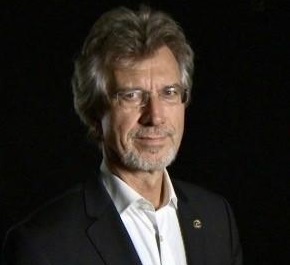
 Optimizing entrepreneurial development processes for smart specialization in the European Union, by László Szerb, Raquel Ortega-Argilés, Zoltan J. Acs, and Éva Komlósi, published in Volume 99, Issue 5, October 2020, Pages 1413-1457.
Optimizing entrepreneurial development processes for smart specialization in the European Union, by László Szerb, Raquel Ortega-Argilés, Zoltan J. Acs, and Éva Komlósi, published in Volume 99, Issue 5, October 2020, Pages 1413-1457.
Motivation:
Through an elegant scientific approach, the paper demonstrates how the Regional Entrepreneurship and Development Index (REDI) can be used to optimize local entrepreneurial discovery processes, in a manner which can support smart specialization strategies (S3). The analysis clearly demonstrates that without optimizing the entrepreneurial ecosystem, the industry specialization alone may not be successful because of the inability of the ecosystem to nurture high growth ventures. With its results, the paper strongly suggests that regional improvement can be achieved by reinforcing the weakest features of the local entrepreneurial ecosystem, an important suggestion for the successful implementation of a smart specialization strategy.
as the winner of the Martin Beckmann Prize as the best paper published in Papers in Regional Science in 2020.
Conference Announcement and Call for Abstracts: Clusters and Competitiveness: Building Resilience in Knowledge-based Regions
Invitation to a hybrid conference on
Clusters and Competitiveness: Building Resilience in Knowledge-based Regions
with annual meeting of the European Chapter of the Microeconomics of Competitiveness Affiliate Network
Bochum (Germany) and online, 23-24 September 2021
Dear Sir, dear Madam,
After three decades of academic discourse on, and practical/political experience with clusters and competitiveness, crises and rising challenges pose new questions to scholars and policy-makers alike. Are clusters and cluster policies still relevant to maintain and build more resilient regions? How did they adapt to new challenges, how do they need to transform in the future? Our conference brings academics, policy-makers and practitioners in the field of regional economic development, clusters and competitiveness together to discuss these and related issues.
Participation is free of charge, please refer to the attached programme for further information. Register via https://public.ruhr-uni-bochum.de/anmeldung-clusters21 until 01 September 2021 stating your name, organisation, and if you are planning to attend in presence or online only. If you plan to attend in presence, please also indicate in which field trip you would like to participate. Until 10 August 2021, you are also invited to upload abstracts for presentations there. For enquiries and further information, please contact Simon Rohde at This email address is being protected from spambots. You need JavaScript enabled to view it..
We look forward to seeing you at the conference!
Yours sincerely,
Dr Rasmus Beck, CEO; Duisburg Business & Innovation (DBI)
Prof Dr Dirk Fornahl, Centre for Regional and Innovation Economics, University of Bremen & Friedrich Schiller University, Jena
Prof Dr Matthias Kiese, Ruhr-University Bochum
Ralf Meyer, CEO, Bochum Economic Development
In Memoriam: Prof. Pedro Ramos (1957-2021)
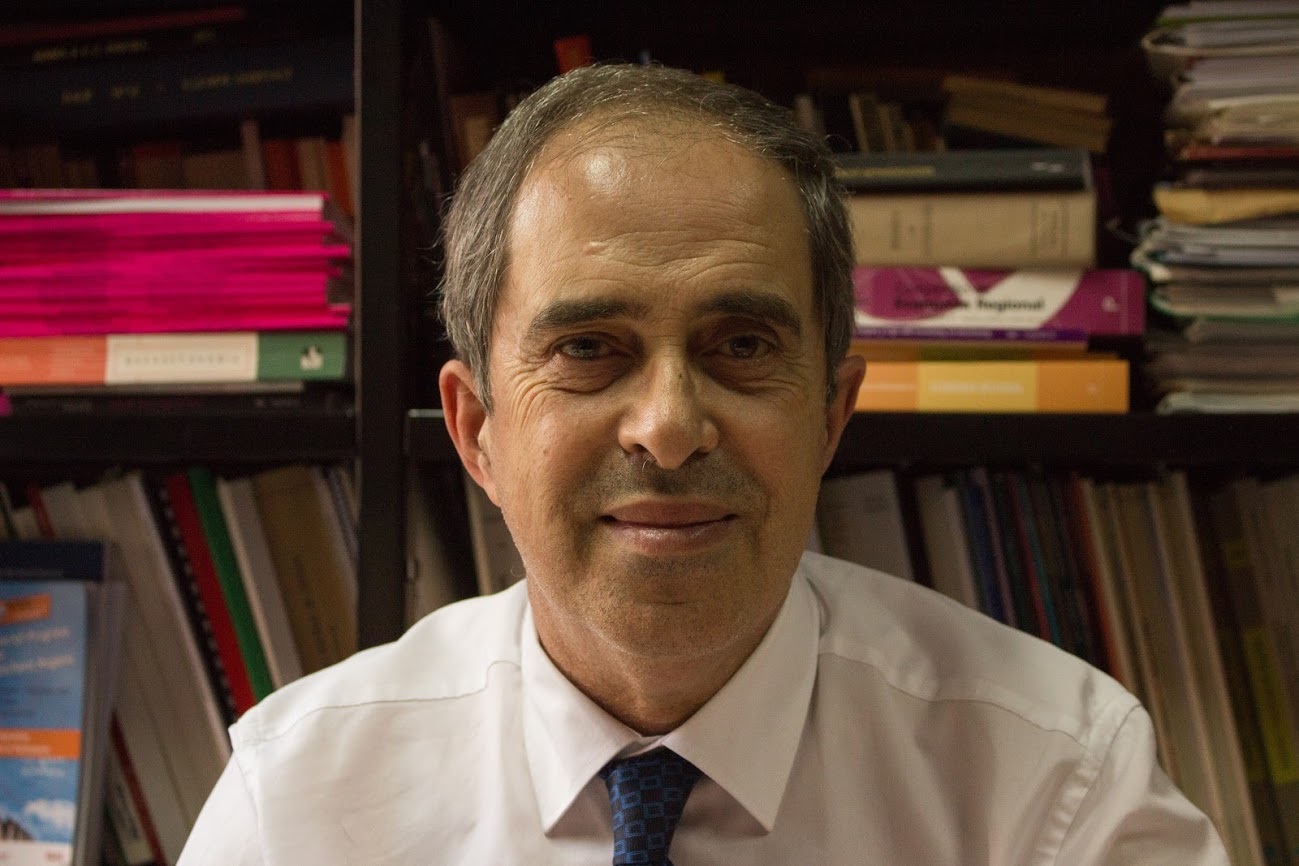 We regret to inform that Pedro Ramos passed away on July 6, 2021. He was 62 years old.
We regret to inform that Pedro Ramos passed away on July 6, 2021. He was 62 years old.
Pedro Ramos was a well-known Portuguese regional economist. He was full Professor at the Faculty of Economics of University of Coimbra and member of CeBER (Center for Business and Economics Research). His main research focus was on Macroeconomics, Regional Economics and Input-Output Techniques. Pedro was also a devoted teacher that influenced thousands of undergraduate students and hundreds of graduate students. He also supervised dozens of Master and PhD students in regional economics and input-output studies.
Pedro Ramos relationship with statistics, data, and geographical and economic indicators was shaped by the years that he served in the Portuguese National Statistics Institute and was a Director of Portuguese National Accounts. He also served as Eurostat consultant for Regional Accounts and help to design common rules for all European countries. For a decade, he helped to project regional economics has the director of the Portuguese Review of Regional Studies and an active member of Portuguese Association of Regional Development. Pedro was also one of the founders and most important supporters of the EU-REAL network where he had many friends and colleagues that will miss him. He used to say it was time to give an opportunity to the new generations, yet Pedro left us too soon and we had so much to learn with him.
Portuguese Section: Call for papers - Extended Deadline: 2021 APDR Congress,16-17 September 2021, UTAD, Vila Real
Dear colleagues,
We have decided to extend the call for papers deadline for the 2021 APDR Congress until August 1, 2021.
We take this opportunity to remind you that the congress it will be held in Vila Real from September 16 to 17, 2021 and that the theme of this edition is “Green and inclusive transitions in Southern European regions: What can we do better?”.
All the necessary information so that you can send your work and register can be found on the website of the 2021 APDR Congress.
Deadline for Abstracts submissions: August 1, 2021. Authors should submit their abstracts through online submission system by following the link https://cmt3.research.microsoft.com/APDR2021.
We look forward to your participation and see you soon in Vila Real.
Regards,
The Organizing Committee and the Board of APDR
NARSC-NECTAR session on "Workforce Impact of Autonomous Technologies"
NARSC-NECTAR organized sessions on
Workforce Impact of Autonomous Technologies
57th Annual North American Meetings of the Regional Science Association International (RSAI) November 10-13, 2021, Denver, U.S.A.
Call for Papers
We are pleased to invite you to contribute papers for NARSC-NECTAR organized sessions, which will be held at the 57th Annual North American Meetings of the Regional Science Association International (RSAI), November 10-13, Denver.
Main Topic
Internet-enabled and algorithm-based transportation and communications technologies such as autonomous vehicles (AV) and artificial intelligence (AI), are changing the way we work and will have important implications for the workforce. New jobs will be created, some jobs will be transformed and yet others will be eliminated. This series of sessions is designed to present the latest research on technological change in the workplace. Papers dealing with a range of workplace issues and technologies are welcome.
Session organizers:
Sicheng Wang (Michigan State University); Elizabeth Mack (Michigan State University).
Submitting an abstract
Please submit your abstract and paper id to the session organizers by July 6, 2021 by sending an e-mail This email address is being protected from spambots. You need JavaScript enabled to view it. and This email address is being protected from spambots. You need JavaScript enabled to view it.. To obtain a paper id you will need to submit an abstract through the conference submission system.
Sicheng Wang, Elizabeth Mack
Call For Paper for 3rd Annual Conference on Regional Science (ACRS3) of Bangladesh Regional Science Association
3rd Annual Conference on Regional Science (ACRS 3) 2021
CALL FOR PAPER FOR THE VIRTUAL CONFERENCE
Regional Development at the Time of Uncertainty
Conference Theme
Any development decision needs to consider uncertainty of future events which may impact implementation of development plans. With globalization, nations are interconnected now. Problems in one region has its domino effect on other regions. The ongoing pandemic makes it amply clear. The development planners are confronted with an uphill task of choosing a path to development because of increasing uncertainty in future due to unprecedented and unanticipated problems with different magnitudes. Covid-19 or extreme events induced by climate change are examples. Researchers need to devise ways and means to address such problems in a systematic and realistic manner. Against this backdrop, Bangladesh Regional Science Association (BRSA) and the Canter for Regional Development Studies (CRDS), Bangladesh University of Engineering and Technology (BUET) are organizing the 3rd Annual Conference on Regional Science (ACRS 3) and inviting paper for presentation at the virtual conference.
Young researchers (below 30 years of age) are especially encouraged to submit papers for a special session for young researchers.
The focus of the conference is regional development in the time of uncertainty. To address this multi-faceted theme of the conference, papers are expected in the following areas:
Sub-Themes of the Conference
- Regional Development and Public Health
- Climate Change, Disaster Management and Regional Development
- Regional Transportation
- Natural Resource Management
- Urban and Regional Economy
- Migration, Rural – Urban Linkage
- Impact of Mega-Infrastructure in Regional Development
- Agriculture and Rural Economics
- Innovation and Impact of Information Technology
- Politics and Governance in Regional Development
- Gender and Social Issues in Regional Development
- Cities in uncertain time
In addition, there would be three workshops addressing the need of young researcher and two keynote speech on burning issues on Regional Development at home and abroad.
Workshops for Young Researchers
- Tools and Methods for Regional Scientists
- Publishing in Regional Science Journals
- Regional Science in Development Planning
Important Dates
|
Submission Portal: www.brsabd.org
In Memoriam: Prof. Antoine Bailly (1944-2021)
 The RSAI wishes to express his family its condolences on the passing of Prof. Antoine Bailly. Antoine was a Past President of the Association; a great scholar; and an esteemed member of the Long Range Planning Committee, the body in charge of advising the current President for all complex and strategic RSAI matters.
The RSAI wishes to express his family its condolences on the passing of Prof. Antoine Bailly. Antoine was a Past President of the Association; a great scholar; and an esteemed member of the Long Range Planning Committee, the body in charge of advising the current President for all complex and strategic RSAI matters.
About Us
The Regional Science Association International (RSAI), founded in 1954, is an international community of scholars interested in the regional impacts of national or global processes of economic and social change.

